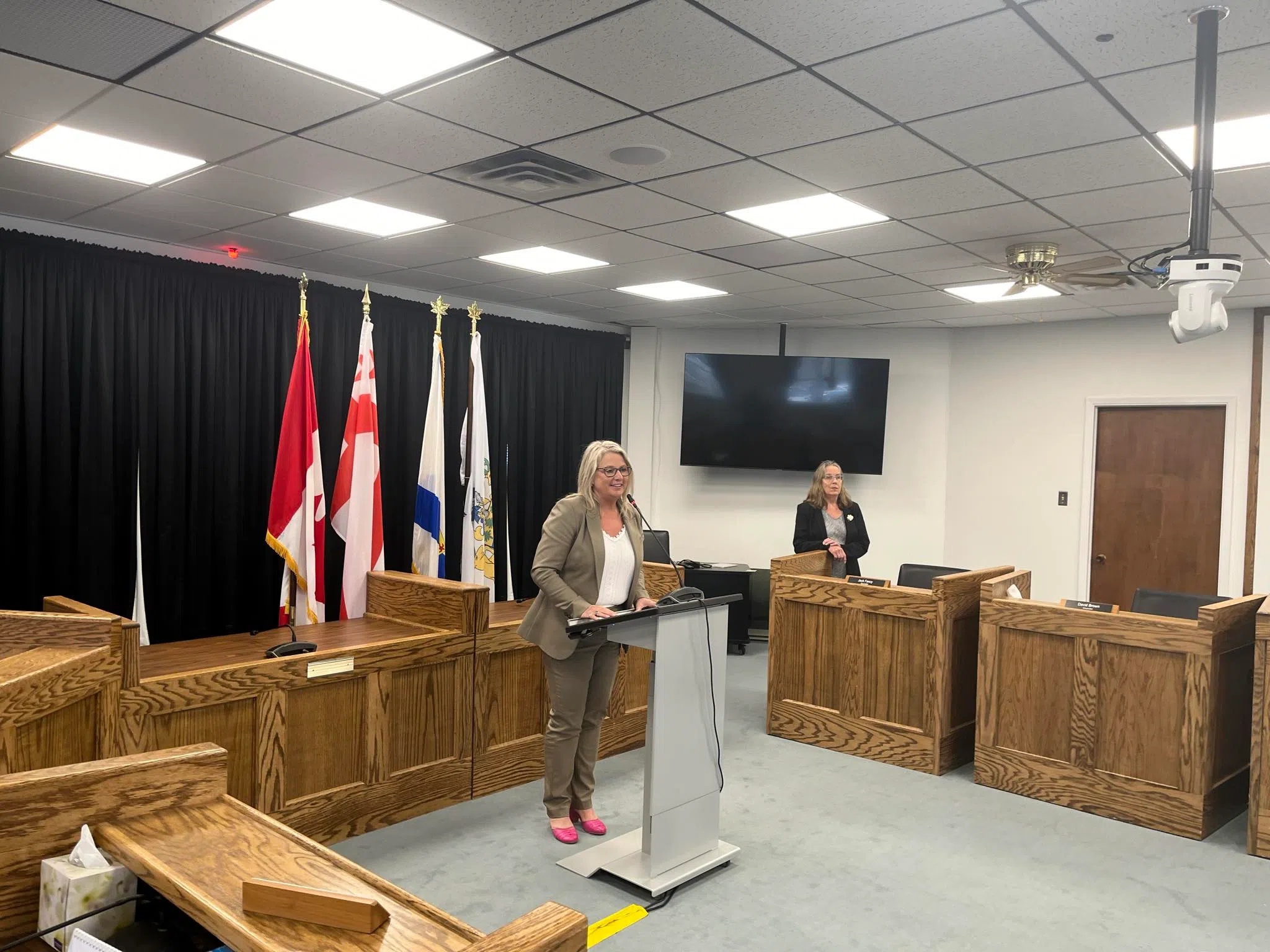
Public Works Minister Kim Masland (centre) and Queens Mayor Darlene Norman (back-right) announced $20M in joint funding for upgrades to water and wastewater systems in Queens. Photo: Evan Taylor
Water and wastewater services in Queens County are set for expansion to accommodate new housing developments in the Mount Pleasant area of Liverpool, announced Public Works Minister Kim Masland, MLA for Queens, speaking on behalf of John Lohr, Minister of Municipal Affairs and Housing.
“We know more people are looking to our area as a place to live, and that means we need more housing and the municipal services that support it,” said Minister Kim Masland.
Mayor Darlene Norman also spoke at the announcement and said the existing system is already at capacity, so this investment is much needed for the region’s growth plans.
The $21.5 million project, jointly funded by the Province and the Region of Queens Municipality, will facilitate the extension and improvement of water and wastewater services to the Mount Pleasant area. This expansion is expected to foster the construction of 325 new homes, accommodating over 1,000 individuals. Additionally, it will enhance firefighting capabilities and upgrade water services for 1,250 existing homes and businesses. Moreover, over 500 meters of combined stormwater and sewer lines will be separated, contributing to improved infrastructure resilience.
Mayor Norman expressed gratitude for the significant financial backing from the Province, highlighting the importance of such investments in enhancing community prosperity and preparedness for future growth endeavours. She also said that while this investment will help facilitate development that’s not it’s only goal and it will also improve the existing water and wastewater infrastructure. “Residents of Liverpool will know what I say when I’m talking about ‘water pressure issues’ and this should fix that too,” Norman said.
Preliminary work on the project has already begun and the Queens Engineering Department estimated the project should be complete within the next 24 to 36 months.
The project falls under the Municipal Capital Growth Program, a provincial initiative aimed at addressing municipal infrastructure needs, including housing, climate change, accessibility, and growth. This program, launched in February with a budget of $102 million, represents the largest provincial investment in municipal infrastructure in recent history.









